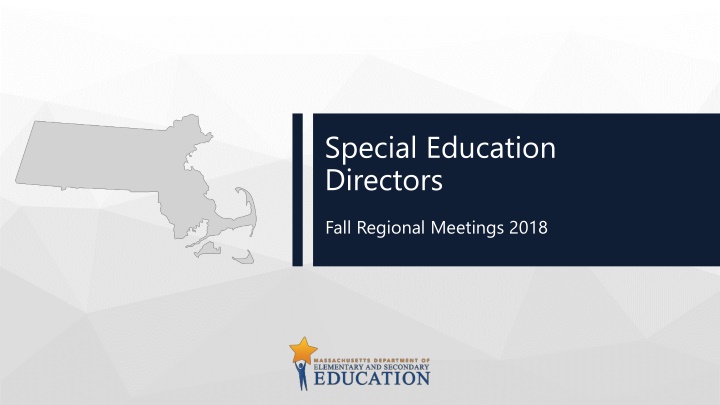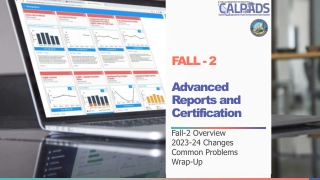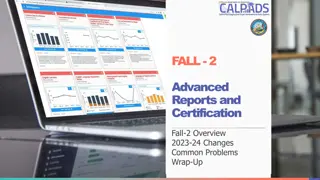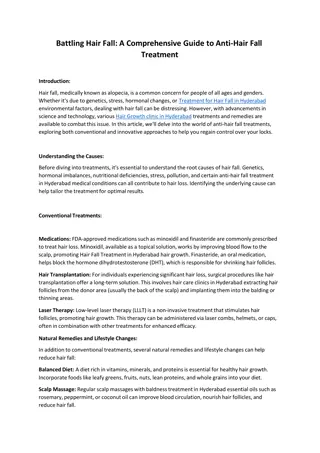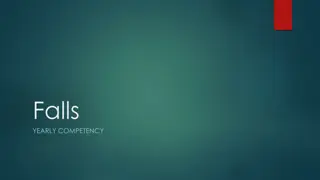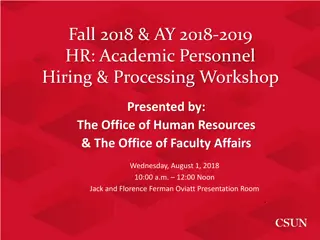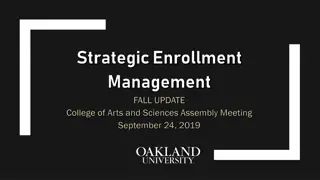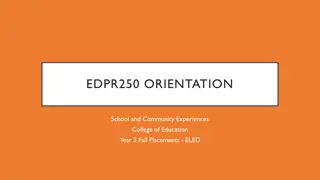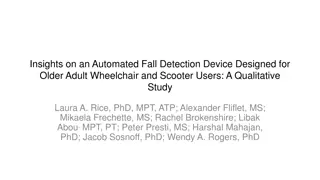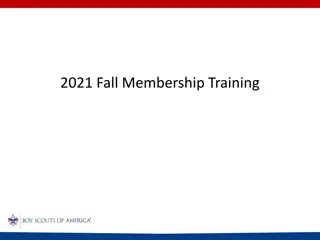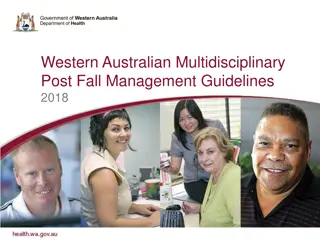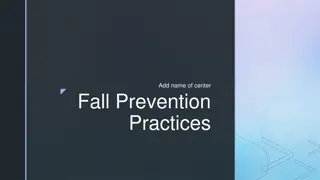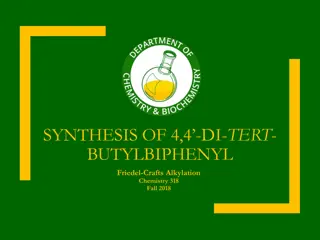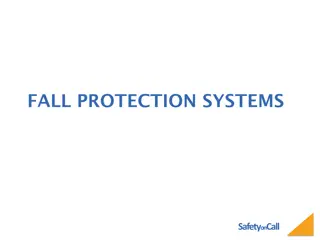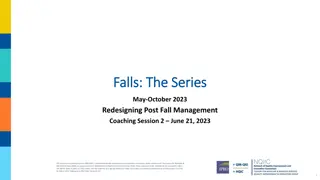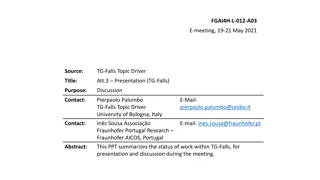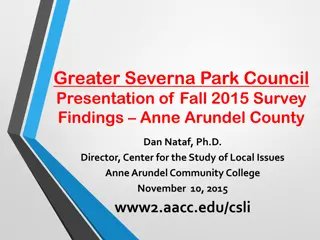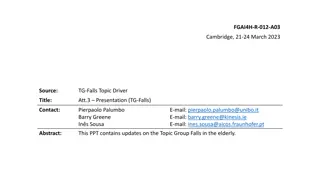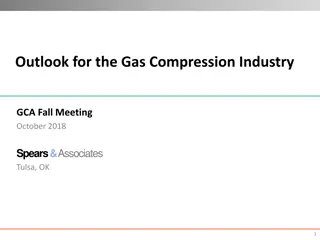Special Education Directors Fall Regional Meetings 2018
Fall Regional Meetings for Special Education Directors in 2018 featuring new resources, tools, programs, and regulatory updates. Discussions on approved public special education schools, dyslexia professional development opportunities, home/hospital tutoring form enhancements, and IDEA grant submissions. Valuable information shared by experts from the Massachusetts Department of Elementary and Secondary Education.
Download Presentation

Please find below an Image/Link to download the presentation.
The content on the website is provided AS IS for your information and personal use only. It may not be sold, licensed, or shared on other websites without obtaining consent from the author.If you encounter any issues during the download, it is possible that the publisher has removed the file from their server.
You are allowed to download the files provided on this website for personal or commercial use, subject to the condition that they are used lawfully. All files are the property of their respective owners.
The content on the website is provided AS IS for your information and personal use only. It may not be sold, licensed, or shared on other websites without obtaining consent from the author.
E N D
Presentation Transcript
Special Education Directors Fall Regional Meetings 2018
AGENDA Welcome Russell Johnston, Senior Associate Commissioner & State Director of Special Education 01 New Resources and Tools for Working With Your Early Intervention Programs Lauren Viviani & Martha Daigle from Special Education Planning & Policy 02 Agenda The Special Education in Institutional Settings Program & Working With School Districts Mary Lou Chapman from SEIS 03 04 Questions/Comments/Ideas Massachusetts Department of Elementary and Secondary Education
Approved Public Special Education School Enrollment Regulatory language: Approved public special education school shall mean a program operated by a public school or an educational collaborative providing services to eligible students in a facility serving primarily students with disabilities. Regulations also call for a majority of students who have been determined eligible for special education services. Implications for new applications and revising existing school applications 3 Massachusetts Department of Elementary and Secondary Education
Dyslexia Professional development opportunities will be available in 2019 DESE website with repository of tools, resources and information Reminder of OSEP letter Share effective practices 4 Massachusetts Department of Elementary and Secondary Education
Home or Hospital Tutoring Form Enhancements intended to: Improve the physician s authorization process by narrowing the scope of orders to comply with regulation Provide additional clarity and certainty to districts by requiring the provision of clear and specific information by the authorizing physician http://www.doe.mass.edu/sped/28MR/ Link to new form: http://www.doe.mass.edu/sped/28MR/ 5 Massachusetts Department of Elementary and Secondary Education
IDEA Grant Submission Oct. 31 due date for Fund Codes 240 and 262 Submit recalculated FY18 proportionate share form if your LEA had an increase in its allocation Federal grant related questions hotline: 781/338-6230 6 Massachusetts Department of Elementary and Secondary Education
IEP Improvement Project Update Thank you for your input last spring Report available by end of December (or sooner) Report will include oreview of IEP tools and processes from various other states orecommendations for process improvements in MA orecommendations for IT solutions Next steps will follow, such as focus groups and work groups 7 Massachusetts Department of Elementary and Secondary Education
Private School Enrollment Data Students who attend private schools located in your district contribute to your IDEA grant funds FY19--$142/student Based upon enrollment data on Oct. 1 Reminder from you might be useful 8 Massachusetts Department of Elementary and Secondary Education
New Resources and Tools for Working with Your Early Intervention Programs Lauren Viviani & Martha Daigle from Special Education Planning & Policy 02
Overview Joint Technical Assistance Advisory Regarding Early Childhood Special Education (ECSE) Transition from Early Intervention (EI) How and why the advisory was created DEC recommended practices for implementation Advisory: Transition from Early Intervention Programs to Early Childhood Special Education Engage with the transition planning tool 10 Massachusetts Department of Elementary and Secondary Education
How and Why this Advisory was Created Technical Assistance Guidance: oDeveloped by your colleagues and EI providers oJointly issued by the Departments of Public Health (DPH) and Elementary and Secondary Education (DESE) Provide resources for early childhood programs Develop implementation strategies for EI and ECSE Include common transition concerns for EI and ECSE Advisory: Guidelines that can be adopted by EI and ECSE programs to support a smooth and timely transition 11 Massachusetts Department of Elementary and Secondary Education
DEC: Evidence-Based Recommended Practices Validation activities with stakeholders Empirical resources of information Knowledge gained through experience 12 Massachusetts Department of Elementary and Secondary Education
DEC Recommended Practices: Transition Transition: Events, activities and processes associated with the changes between environments/programs oPractices that support the adjustment of the child and family Home EI programs Childcare Educational programs and supports oPositive relationships Program-program Educator-child Educator-family 13 Massachusetts Department of Elementary and Secondary Education
DEC Recommended Practices with Examples Copple, C., & Bredekamp, S. (2009). Developmentally appropriate practice in early childhood programs serving children from birth through age 8 (3rd ed.). Washington, DC: NAEYC. DEC/NAEYC. (2009).Early childhood inclusion: A joint position statement of the Division for Early Childhood (DEC) and the National Association for the Education of Young Children (NAEYC). Retrieved from DEC website: http://www.dec-sped.org/papers 14 Massachusetts Department of Elementary and Secondary Education
Advisory Overview Early Childhood Special Education (Part B) Provides educational supports for children; 3-5 years Early Intervention (Part C) Provides integrated developmental services to families of children; birth-3 years Eligibility determined o if the child has developmental difficulties due to an identified disability o if there is a risk due to birth or environmental circumstances Eligibility determined o If the child has a disability o If the disability affects academic progress Based on student s individual educational needs Family Centered 15 Massachusetts Department of Elementary and Secondary Education
Advisory Overview Early Childhood Special Education Eligibility determination process must be completed for every referral from EI program Early Intervention Individual Family Support Plan (IFSP) developed for all children leaving EI Transition Planning Conference (TPC) to plan for services when the child turns 3 The local school district attends the TPC Referrals to ECSE must be made to the district where the child lives no fewer than 90 days (and up to 9 months) before the child s third birthday If determined eligible for special education, the IEP must be developed and implemented by the child s third birthday 16 Massachusetts Department of Elementary and Secondary Education
Structure of the Advisory 17 Massachusetts Department of Elementary and Secondary Education
Main Topics of the Advisory EI Responsibilities School District Responsibilities Eligibility Implementing the IFSP/IEP EC Transition Planning Tool 18 Massachusetts Department of Elementary and Secondary Education
Transition Planning Tool Sample Student 19 Massachusetts Department of Elementary and Secondary Education
Timeline Suggestions 20 Massachusetts Department of Elementary and Secondary Education
Advisory Walkthrough Pass out the 5 index cards found on your table For 10 minutes: oReview that section (individually or in pairs) oPick out main points oWhat s new for you? For 5 minutes: oEach section shares out with the table 21 Massachusetts Department of Elementary and Secondary Education
Review Discussed DEC Recommended Practices Reviewed EI and ECSE Requirements Engaged with the Advisory and Planning Tool 22 Massachusetts Department of Elementary and Secondary Education
Resources http://www.mass.gov/eohhs/gov/departments/dph/programs/family-health/early-intervention/ Massachusetts Department of Public Health (DPH) Early Intervention Division: http://www.mass.gov/eohhs/gov/departments/dph/programs/family-health/early-intervention/ DPH - Transition Process: https://eiplp.org/transition-resources-2/ Continuing the Journey: http://eipop.wpengine.com/wp-content/uploads/2015/09/Continuing-the- Journey-2014-eng.pdf EEC - Transitioning from Early Intervention into Preschool Special Education: http://www.mass.gov/edu/birth-grade-12/early-education-and-care/provider-and-program- administration/services-for-children-with-disabilities-and-special-needs/transitioning-from-early- intervention-into-preschool-special-education/ Early Childhood Technical Assistance Center: http://ectacenter.org/ Division for Early Childhood (DEC) Recommended Practices: http://www.dec-sped.org/dec- recommended-practices https://eiplp.org/transition-resources-2/ http://eipop.wpengine.com/wp-content/uploads/2015/09/Continuing-the-Journey-2014-eng.pdf http://eipop.wpengine.com/wp-content/uploads/2015/09/Continuing-the-Journey-2014-eng.pdf http://www.mass.gov/edu/birth-grade-12/early-education-and-care/provider-and-program-administration/services-for-children-with-disabilities-and-special-needs/transitioning-from-early-intervention-into-preschool-special-education/ http://www.mass.gov/edu/birth-grade-12/early-education-and-care/provider-and-program-administration/services-for-children-with-disabilities-and-special-needs/transitioning-from-early-intervention-into-preschool-special-education/ http://www.mass.gov/edu/birth-grade-12/early-education-and-care/provider-and-program-administration/services-for-children-with-disabilities-and-special-needs/transitioning-from-early-intervention-into-preschool-special-education/ http://ectacenter.org/ http://www.dec-sped.org/dec-recommended-practices http://www.dec-sped.org/dec-recommended-practices 23 Massachusetts Department of Elementary and Secondary Education
Questions 24 Massachusetts Department of Elementary and Secondary Education
THANK YOU Martha Daigle 781-338-3366 www.doe.mass.edu mdaigle@doe.mass.edu 75 Pleasant Street, Malden, MA 02148
The Special Education in Institutional Settings Program & Working With School Districts Mary Lou Chapman from SEIS 03
SEIS Background Since 1974, SEIS has been a statewide program run by DESE to provide special education services to children and youth with disabilities residing in state facilities operated by: o Department of Youth Services 51 Sites o Department of Mental Health 14 Sites o County Houses of Correction 13 Sites o Department of Public Health 1 Site In SY18, SEIS served a monthly average of approximately 450 students in 80 sites statewide 27 Massachusetts Department of Elementary and Secondary Education
SEIS Students Monthly Average Number of Students SY17-18 236.7 96.8 69.9 42.7 CHC DMH DPH DYS 28 Massachusetts Department of Elementary and Secondary Education
SEIS Contracted Education Provider Contract with the Collaborative for Educational Services through June 30, 2020. Provider Services: oEducational Staffing in 80 sites oTechnology, Data Management, Professional Development and Curriculum 29 Massachusetts Department of Elementary and Secondary Education
SEIS in DYS DYS provides the general education program and content is aligned with the MA Curriculum Frameworks SEIS integrates special education services with content curriculum DYS also provides Title I, HiSET preparation, dual college enrollment, Future Ready vocational programming More than 50% of DYS youth are students with IEPs Most SEIS students are served in an inclusive classroom with DYS and SEIS educators co-planning and co-teaching 30 Massachusetts Department of Elementary and Secondary Education
SEIS in CHCs County Houses provide educational services, but not a full general education program CHC SEIS population is adult only (18-22) CHC education services vary by site, but typically include Title I, Adult Basic Education, and vocational programming SEIS educators provide consultation to CHC educators and 1:1/small group instruction aligned with students IEPs 31 Massachusetts Department of Elementary and Secondary Education
SEIS in DMH Some DMH students do not have IEPs Full day basic academic program in child and adolescent units 1:1 tutoring for students in adult units scheduled around clinical programming Admission/discharge and movement between DMH facilities is determined by DMH 32 Massachusetts Department of Elementary and Secondary Education
SEIS in DPH Pappas Rehabilitation Hospital for Children Students with multiple physical and cognitive disabilities Admission and discharge decisions made by DPH Length of stay for students is longer than other Host Agency sites After admission, most IEP related services are provided by DPH as medical/clinical services MCAS-ALT portfolios are frequent 33 Massachusetts Department of Elementary and Secondary Education
Special Education Services SEIS and public school districts are responsible to ensure that each eligible student residing in these facilities receives special education services according to an Individualized Education Program (IEP) developed in accordance with special education law SEIS is the provider of the special education services as resources permit and consistent with applicable special education regulations 34 Massachusetts Department of Elementary and Secondary Education
Special Education Services When SEIS does not provide a particular service required by a student s IEP, the school district in which the student resides must provide it, consistent with the policies and procedures of the host agency The school district responsible for the student develops the IEP, conducts special education evaluations and annual reviews, and, when necessary, coordinates with SEIS on the implementation of the student s IEP in the host agency setting 35 Massachusetts Department of Elementary and Secondary Education
Non SEIS Services (NSS) Technical Assistance Advisory If IEP services are identified as NSS, the school district is notified in writing: oIdentify service providers oDiscuss other options with parent, guardian, or adult student SEIS School District Liaisons helps to coordinate with the host agency. 36 Massachusetts Department of Elementary and Secondary Education
Non SEIS Services (NSS) Technical Assistance Advisory Counseling and Other Clinical Services oDiscuss with parent oMay agree to suspend services while the student is in the setting oCreate an amendment 37 Massachusetts Department of Elementary and Secondary Education
Role of the School District Liaison (SDL) SEIS SDL is primary liaison with school district Notifies district when student enters SEIS Requests current IEP and copies of relevant school records Maintains records in Aspen SEIS student database Ensures district conducts timely Team meetings and re- evaluations When appropriate, works with district to enable student to receive academic credit for completed SEIS coursework 38 Massachusetts Department of Elementary and Secondary Education
SEIS Challenges Providing SEIS services requires accommodating to the: Host Agency setting Sending school district requirements Specific student circumstances Making teaching and learning successful for the students while working in partnership with school districts in providing access to the general curriculum 39 Massachusetts Department of Elementary and Secondary Education
THANK YOU Mary Lou Chapman, SEIS Director Shawn Connelly, SEIS Asst. Director mchapman@doe.mass.edu mchapman@doe.mass.edu shawn.connelly@doe.mass.edu shawn.connelly@doe.mass.edu www.doe.mass.edu 75 Pleasant Street, Malden, MA 02148
